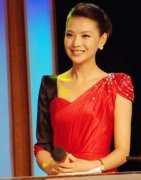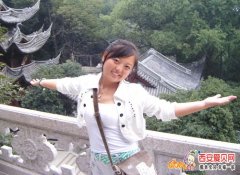PortraitofanActress女演员肖像(4)
然而,仔细观察过萨特金画的爱伦·泰瑞身着礼服,头戴王冠扮演的麦克白夫人的全幅肖像,我们来看看下一幅画面。那是从另一个视角展现的情景。她手中拿着一支笔,坐在桌旁。一册莎士比亚戏剧集摆放在她面前,打开的页面是《辛白林》,她在页边的空白处仔细做了注释。在伊莫金的部分提出了许多问题。她说,对于她的疑问她是‘十分痛苦的’。也许萧伯纳可以解释这些疑问?在莎士比亚戏剧集的旁边有封来自《星期六评论》有才气的年青评论家的信件。她从未与他见过面,但多年来他们一直进行着亲切、热烈、或有争论的信函往来,有些信件从语言层面看实为佳作。他说了最令人吃惊的事情。他把尊敬的享利比成怪物,而爱伦是他锁在笼中的俘虏。但是爱伦·泰瑞在对阵萧伯纳时却是很能把握自己的。她训斥他,嘲笑他,爱抚他并且反驳他。她对享利痛恨的那些高见有着异乎寻常的同情,但对那些有才气的评论家针对伊莫金这个人物进行的评论有过什么建议吗?显然没有,她已经不考虑自己了。她像他一样成为了亲切而爱挑剔的莎士比亚的学者。她研究着每行文字,权衡着每个字的含意,用各种动作加以验证。在那些黄金时刻她得以脱胎换骨,忘却了自我,那每一个时刻都是日积月累和仔细研究的结果。‘艺术’她引用道,‘需要我们付出努力才能更加完美,我向你保证。’其实这是个性情不定的女人,拥有所有的本能,以及感觉,如同一个勤勉的学生,也像福楼拜本人那样,为她艺术的尊严小心谨慎。
But once more the expression on that serious face changes. She works like a slave—none harder. But she is quick to tell Mr. Shaw that she does not work with her brain only. She is not in the least clever. Indeed, she is happy she tells him, ‘not to be clever’. She stresses the point with a jab of her pen. ‘You clever people’, as she calls him and his friends, ‘miss so much, mar so much’. As for education, she never had a day’s schooling in her life. As far as she can see, but the problem baffles her, the main spring of her art is imagination. Visit madhouses, if you like; take notes; observe; study endlessly. But first, imagine. And so she takes her part away from the books out into the woods. Rambling down grassy rides, she lives her part until she is it. If a word jars or grates, she must re-think it, rewrite it. Then when every phrase is her own, and every gesture spontaneous, out she comes on to the stage and is Imogen, Ophelia, Desdemona.
然而在那表情严肃的脸上再一次发生了改变。她拼命工作着—没有人比她更卖力地工作了。而她却很快地告知了萧伯纳先生,她没有工作,只是想了些问题。她一点也不聪明。的确,她告诉他‘不那么聪明’,她很快乐。她强调了她所表达的重点。‘你们有那么多的聪明人’,就像她称呼他和他的朋友们那样,‘不能明白,不会欣赏’。说到教育,她一生中从未进过一天学校。至于她目前的状况,除了教育问题困扰着她以外,她艺术的主要活力来自想象力。走访精神病院,如果你愿意的话;做些笔记,写点心得,不断地进行研究,但首先要有想象力。所以她没有去啃书本,而是将自己投身于生活的森林之中。她漫步于林间小路,把自己视同为剧本中的女主角,与角色一起分享着她的情感体验。如果台词拗口或不流畅,她一定会思考再三,会重写。于是当每句措词都了然于心,每个动作都自然而然的时候,她会出现在舞台上,展现的便是伊莫金,奥菲莉娅,苔丝狄蒙娜。
But is she, even when the great moments are on her, a great actress? She doubts it. ‘I cared more for love and life,’ she says. Her face, too, has been no help to her. She cannot sustain emotion. Certainly she is not a great tragic actress. Now and again, perhaps, she has acted some comic part to perfection. But even while she analyses herself, as one artist to another, the sun slants upon an old kitchen chair. 'thank the Lord for my eyes!’ she exclaims. What a world of joy her eyes have brought her! Gazing at the old ‘rush-bottomed, sturydy-legged, wavy-backed’ chair, the stage is gone, the limelight are out, the famous actress is forgotten.
然而,甚至在她处于最为辉煌的时刻时,她是一位伟大的演员吗?她对此表示怀疑。‘我更喜欢爱情和生活,’她说道。她的相貌也没有给她带来什么帮助,她无法维持情感。当然她不是一位伟大的悲剧演员,也许,她时而扮演的一些喜剧角色很完美。但即使她像一名艺术家分析自身时,她的注意力都会被一把厨房里的照射着斜阳的老旧椅子所吸引,‘感谢上帝赐予我双眼!’她叫喊着。她的眼睛带给她了一个多么快乐的世界!凝视着那把‘座板上翘,椅腿结实,靠背呈现波浪型’的椅子,那曾经的舞台消失了,聚光灯息灭了,那著名的女演员被人们遗忘了。
Which, then, of all these women is the real Ellen Terry? How are we to put the scattered sketches together? Is she mother, wife, cook, critic, actress, or should she have been, after all, a painter? Each part seems the right part until she throws it aside and plays another. Something of Ellen Terry it seems overflowed every part and remained unacted. Shakespeare could not fit her; nor Ibsen; nor Shaw. The stage could not hold her; nor the nursery. But there is, after all, a greater dramatist than Shakespeare, Ibsen, or Shaw. There is Nature. Here is so vast a stage, and so innumerable a company of actors, that for the most part she fobs them off with a tag or two. They come on and they go off without breaking the ranks. But now and again Nature creates a new part, an original part. The actors who act that part always defy our attempts to name them. They will not act the stock parts—they forget the words, they improvise others of their own. But when they come on the stage falls like a pack of cards and the limelight are extinguished. That was Ellen Terry’s fate—to act a new part. And thus while other actors are remembered because they were Hamlet, Phedre, or Cleopatra, Ellen Terry is remembered because she was Ellen Terry.










